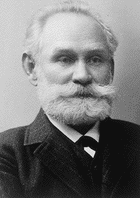Clinical and service guidelines for supporting people with learning disabilities who are at risk of receiving abusive or restrictive practices
This report is the result of a joint working group of the learning disability faculties of the British Psychological Society and the Royal College of Psychiatrists, in consultation with the Royal College of Speech and Language Therapists. The main focus is on adults who are vulnerable to restrictive interventions and abuse as a consequence of their limited capacity to make choices for themselves about where they live or work, and how they are supported.
This report concerns standards of clinical practice in supporting people with learning disabilities who present behavioural challenges. It unites the clinical theory and practice of health professions that have specific models for the assessment and management of challenging behaviour. The fundamental unifying principle is to improve the quality of life for people whose behaviour challenges others.
The report focuses primarily on adults with moderate to severe learning disabilities, although the broad principles outlined are applicable to children and adults of all degrees of intellectual disability. People with learning disabilities who present behavioural challenges are often marginalised, stigmatised, disempowered and excluded from mainstream society.
This report has been produced with the following aims:
- To revise and develop the interpretation of the term challenging behaviour.
- To bring together relevant, available, evidence-based practice with a consensus of clinical opinion and experience.
- To provide a unified framework for good practice in multidisciplinary clinical and social interventions.
- To encourage the development of creative, flexible and effective responses to individuals who present behavioural challenges.
- To provide guidance for service developers and commissioners.
- To inform and empower service users and their carers.
- To provide a set of standards of good practice against which service provision can be benchmarked and audited.
- To promote the development of comprehensive and effective local services and to reduce the number of individuals who are failed by the current service provision.
- To provide a framework for training of health and social care professionals and paid support staff and carers.
- To guide future research and development.
The unifying principle is to improve the quality of life of people whose behaviour challenges services. It hopes to complement other publications and guidance in this area and overall to further a reinvigorated and unified approach to supporting people whose behaviour is experienced as challenging. This requires a multidisciplinary and multi-agency approach, and therefore the report has been produced with the intention that it will be relevant and useful to a wide range of health and social care professionals, family and paid carers, service providers and commissioners.
It is intended to provoke action as much as to inform, and to encourage local and national debate, analysis, review and response.
follow the link to download a copy








.png)















No comments:
Post a Comment